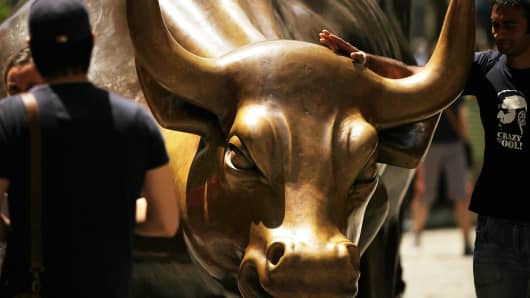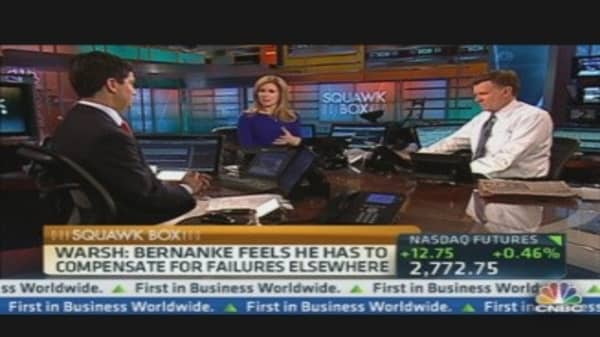In the wake of the greatest financial crisis since WWII, the S&P 500 fell to 666.79 during the trading day on March 6, 2009. Bernanke's first round of quantitative easing would follow just 12 days later.
Two more rounds of bond purchases later — along with an "Operation Twist" — and the market finds itself entering its fifth year of existence on Bernanke's juice. The other U.S. market barometer — the Dow Jones Industrial Average — rose to a record high Tuesday.
"The next step is where it will get interesting," said Mike Murphy of Rosecliff Captial. "Will the Fed be able to pass the baton to the economy and will the economy be able to run with it?"
While Bernanke has certainly lifted asset values, economic and job growth remains anemic. GDP increased by just 0.1 percent in the fourth quarter. A report Friday is expected to show the unemployment rate in February was unchanged at 7.9 percent.
That is key as the Fed chief said last week that the central bank wouldn't stop QE until unemployment reaches 6 percent, an occasion Bernanke doesn't see happening until 2016.
"Ultimately, we need job and income growth to continue supporting the economy and stock market once central banks decide to pull back," said Michael Sheldon, chief market strategist for RDM Financial Group.
Still, many investors believe others are not giving consumers and corporations enough credit. Sure, Bernanke got the ball rolling after the bursting of maybe the biggest credit bubble ever, but tangible improvements are behind the bull, they argue.
"Profit margins, productivity and real demand is at work here," said Joe Terranova, chief market strategist for Virtus Investment Partners. "It's been earnings driving it and they will continue to grow."
The S&P 500 earned just $60.43 per share at the end of 2008, according to Virtus. That will double to $123 a share in 2014, according to consensus estimates from Wall Street strategists.
For the best market insight, catch "Fast Money" at 5 p.m. ET, and the "Halftime Report" at 12 noon ET each weekday on CNBC. Follow @CNBCMelloy on Twitter.





